
Enhancing Student Outcomes and Teacher Practice through Math Mastery: A Comprehensive Study Tour and Curriculum Framework Development.
As a primary school teacher with ten years of classroom experience, I’ve had the opportunity to teach across year levels from Prep to Year 3. Throughout my teaching journey, I’ve developed a strong passion for ensuring that every student feels a sense of success in the classroom and equally, that every teacher feels confident and equipped to deliver high-quality lessons. Over time, I’ve become increasingly interested in how we can bring greater consistency and clarity to the way we teach mathematics across the early years.
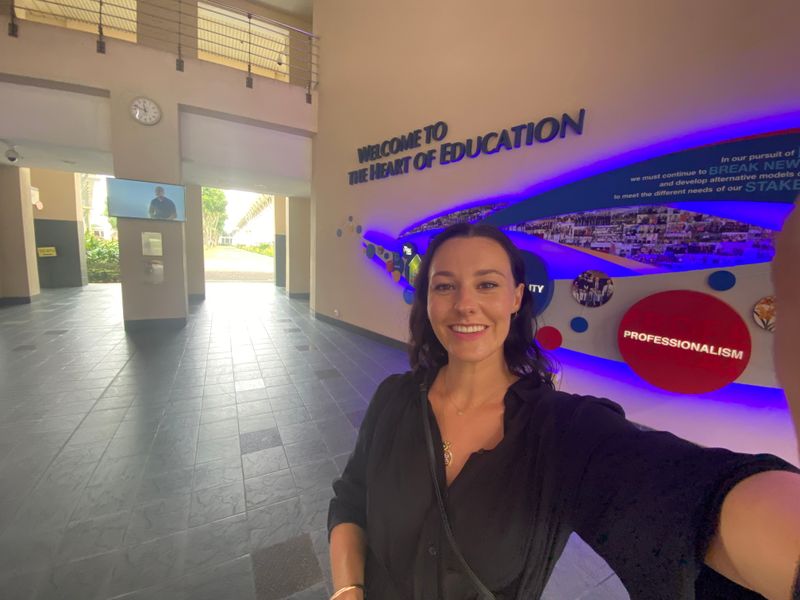
In 2024, I was fortunate to be awarded the inaugural Toowoomba Grammar School Teaching Fellowship to explore this interest more. My proposal, titled Enhancing Student Outcomes and Teacher Practice through Math Mastery: A Comprehensive Study Tour and Curriculum Framework Development, focused on investigating how the Math Mastery approach could strengthen both student understanding and teacher instruction in mathematics. This opportunity took me to Singapore to investigate the Math Mastery approach - an internationally recognised model of mathematics instruction that supports every student to achieve deep understanding through carefully sequenced, explicit teaching.
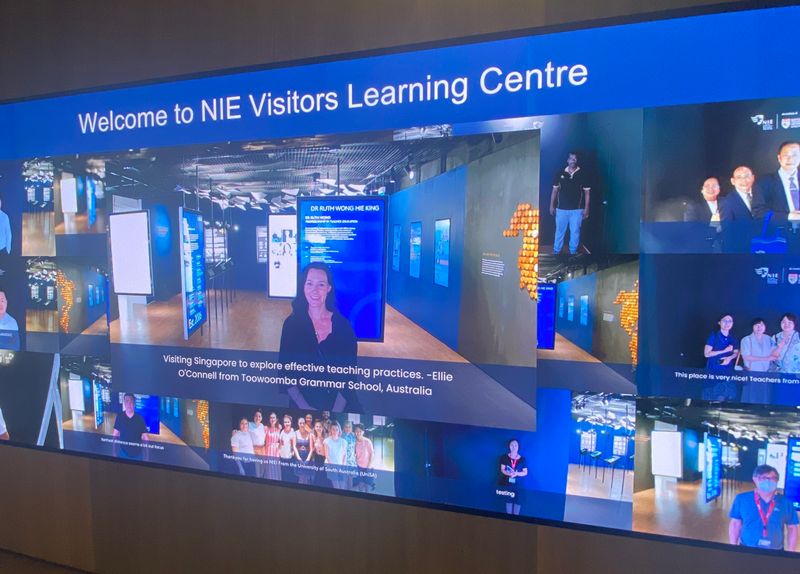
Why Mathematics? Why Now?
Across Australia, there is growing national concern about the long-term decline in mathematics achievement. Reports such as the Gonski Review (2018) highlight that many students are not mastering the basic skills needed for future learning, and that teachers need more explicit, structured tools to support all learners. In the early years of schooling—where concepts are first introduced, and mathematical mindsets are formed—it’s crucial that instruction is clear, consistent and effective. Gaps in understanding at this stage can have long-lasting effects on a child’s confidence and progress. The fellowship was an opportunity to examine international best practices and bring back evidence-informed strategies that could enhance both student outcomes and teacher practice in our own School.
Learning from Singapore: Schools and Insights
During my study tour in Singapore, I visited two leading international schools: Dulwich College and Invictus International School. Both schools use mastery-based approaches to mathematics, with structured, well-sequenced programs designed to develop deep conceptual understanding. At Dulwich College I observed math lessons from Years 1 to 5 that emphasised both mastery and practical application. The classrooms fostered a calm, focused learning environment in which teachers guided students through new concepts using clear, structured instruction, ensuring mastery through modelling, guided practice and checking for understanding before progressing. I also engaged in discussions with the school’s mathematics leadership team, who shared their planning processes and how they support teachers to differentiate within whole-class teaching.
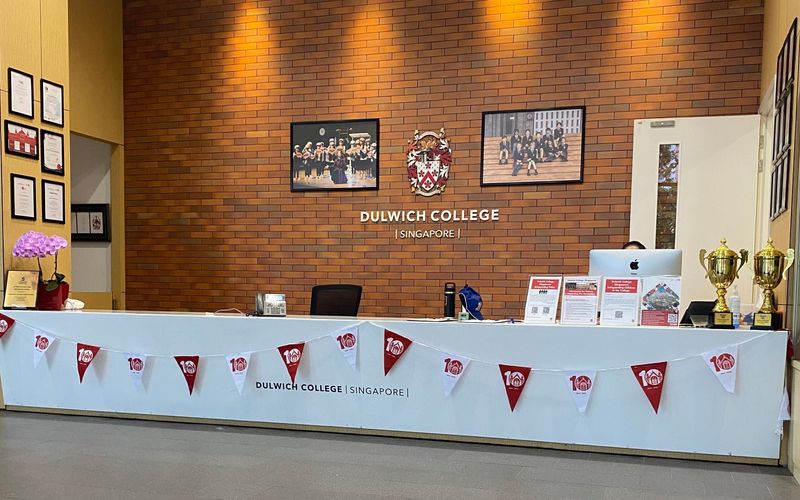
Invictus International School offered a contrasting yet equally valuable perspective. With a diverse cohort of learners and a flexible curriculum model, their team demonstrated how mastery principles can be embedded in a range of contexts. I also had the opportunity to meet with local educational consultants and curriculum developers, who offered insights into how Singapore’s national curriculum supports cumulative learning, daily review and concept mastery from the early years onwards.
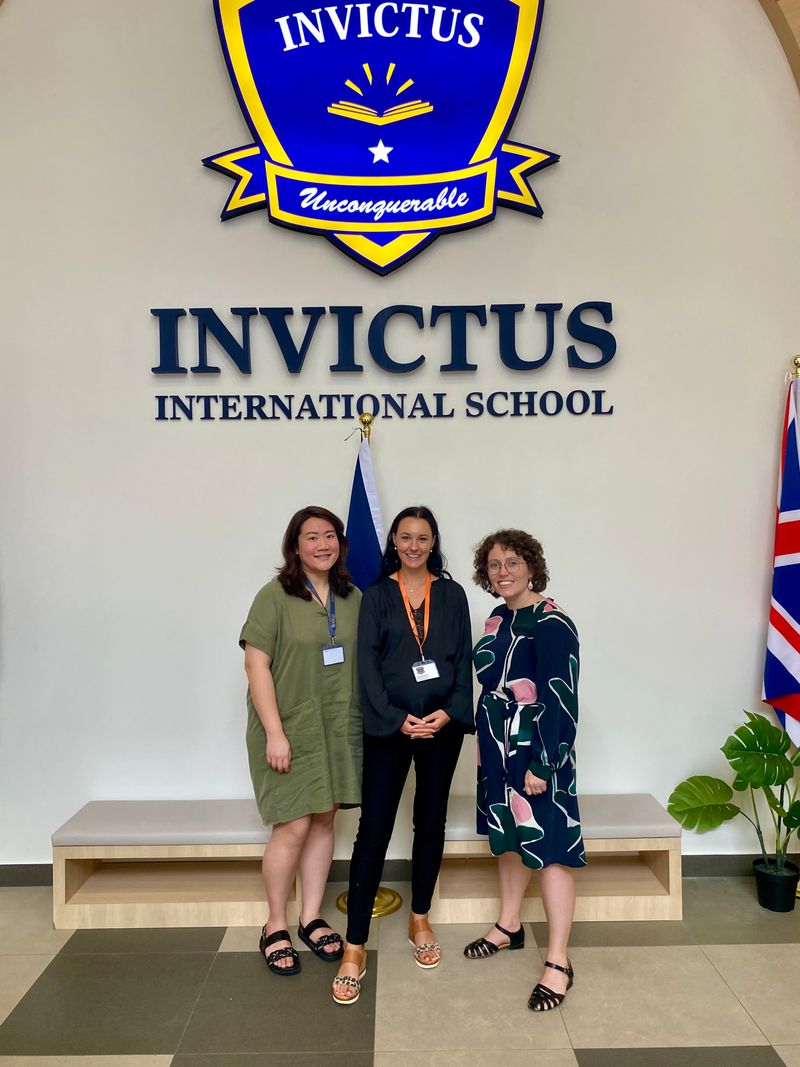
Key Findings: What Makes Mastery Work?
My observations confirmed the power of structured, explicit teaching in building strong foundations in mathematics. These were the key elements that stood out across all settings:
- Clear Learning Objectives
Teachers clearly define what students need to know and be able to do at the end of each unit or lesson.
- Whole-Class Instruction with Embedded Differentiation
Rather than streaming students by ability, mastery classrooms taught concepts to the whole class while using questioning, scaffolding and targeted support to meet individual needs.
- Corrective Instruction
Students who don't achieve mastery receive additional instruction or support to address knowledge gaps.
- Cumulative, Carefully Sequenced Learning
Each lesson built directly on the last, with time allocated for review and consolidation. This ensured that no student was left behind and that concepts were truly understood before new material was introduced.
- Mathematical Language and Reasoning
Teachers modelled precise vocabulary and encouraged students to explain their thinking. This supported deeper reasoning and helped students internalise core concepts.
- Learning Routines
Clear instructional routines and behaviours are established in every classroom, reinforcing expectations and supporting learning.
- Lesson Resources
Hands-on materials and visual examples are carefully chosen to help students connect with new concepts in ways that suit their learning needs.
- Fluency
Essential number facts are practised until automatic, helping students reduce cognitive load, enhancing students’ ability to focus on new and more complex ideas.
- Calm, Confident Learners
Most powerfully, students appeared confident, focused and proud of their mathematical thinking. The clear structure and shared learning journey contributed to a positive and inclusive classroom culture.
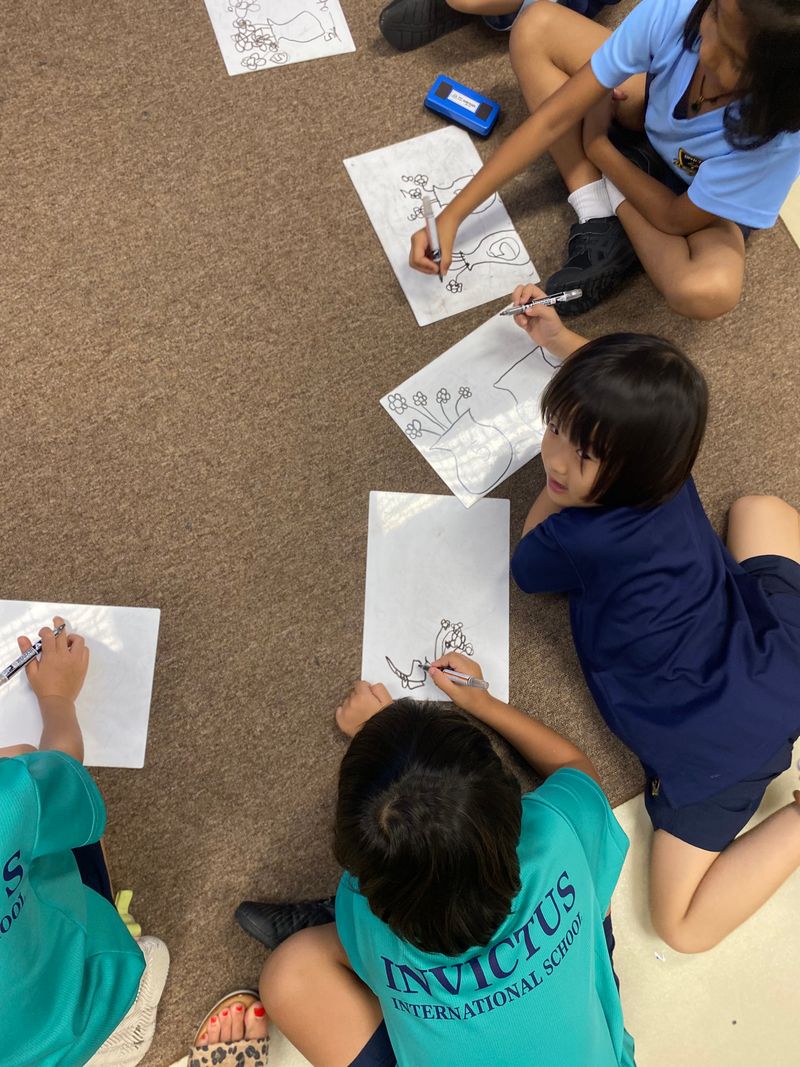
Global Perspective: Insights from Kinder World School
As a part of my research, I was able to engage in a conversation with Peter Baker, Principal Supervisor of 13 KinderWorld International Schools across Vietnam, I was able to dive deeper into how the Math Mastery approach works in large, diverse educational settings. These schools have adopted the Singapore Math model, a mastery-based framework built around explicit teaching and cumulative learning - many of the same principles I explored during my study tour.
Peter shared that their decision to adopt this approach was driven by a need for a consistent, evidence-based program that teachers could pick up quickly, deliver confidently and implement cost-effectively. “We started the explicit teaching model a couple of years back,” he explained. “We call it the KinderWorld Model. Retrieval practice to strengthen knowledge and problem-based application of learning is also included. I think it certainly makes a difference.”
What stood out to me in our discussion was just how closely their journey mirrors our own at TGS. We have already embedded strong practices in literacy through well-structured, whole-school programs that align with explicit teaching and the science of learning. However, mathematics remains an area where we see room for greater consistency and greater gains.
While our data confirms that we continue to perform above the state average in mathematics, recent NAPLAN results highlight a national decline in numeracy - a trend that we are aiming to avoid in our own School’s results. While we continue to do well, we have an opportunity and a responsibility to do even better for our boys. This is not just a local issue. In 2015, the Office of the Chief Scientist collaborated with ACARA to examine schools across Australia that had made significant improvements in numeracy over two years. Their report found that mastery-oriented environments were a consistent feature in high-performing schools (Smith et al., 2028).
When I asked Peter how the performance of his students compared to their peers in Australia, his response was compelling:
“We’ve had feedback from parents - many of whom are teachers - saying that when their children return to Australia, they are at least one to two years ahead in mathematics compared to their peers at home.”
This reinforces what global research has been saying for some time: structured, explicit, mastery-based teaching works. And more importantly, it works for all learners - not just the confident few.
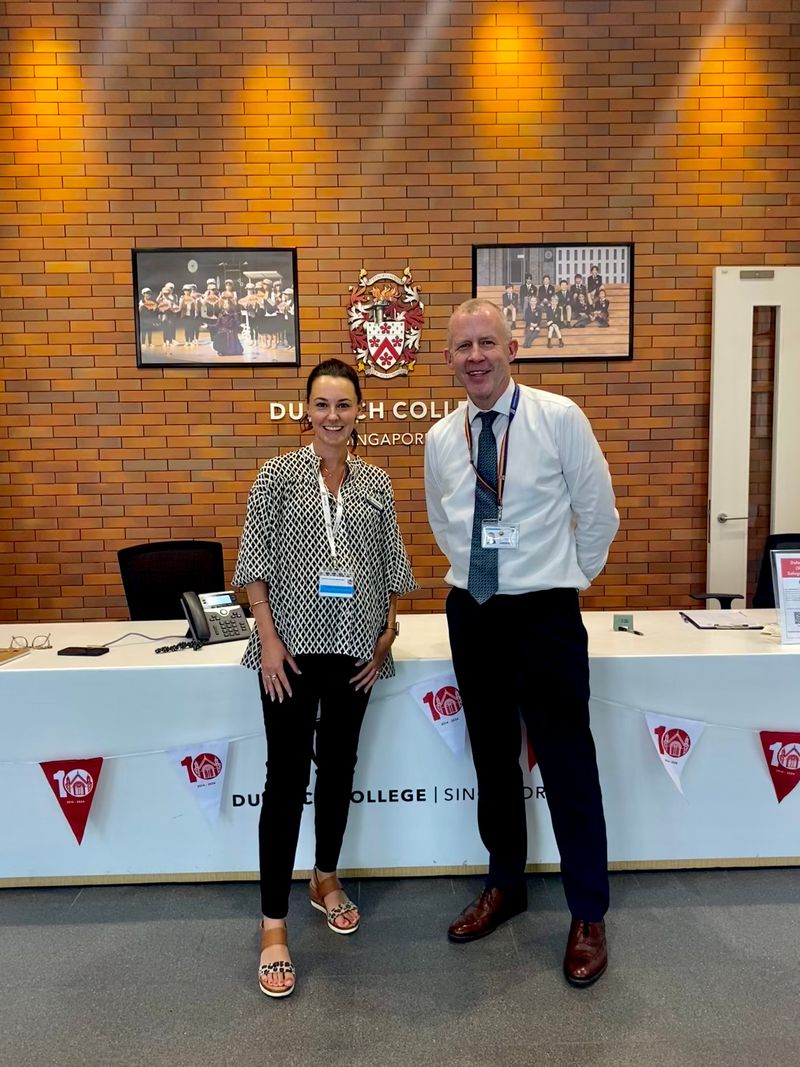
Bringing It Home: What’s Next for TGS?
I’m incredibly grateful for the opportunity this fellowship has provided - not only in shaping and deepening my own practice, but in contributing to a broader, shared vision for mathematics at TGS. This experience reinforced my belief that every student can succeed in mathematics when we give them the right tools, time and teaching. We are now laying the foundations for a clear and united approach to numeracy, one that will equip every boy with the confidence and skills to succeed - not just in the classroom, but throughout their schooling and beyond. And just as importantly, we’re building a community of confident teachers who are equipped to deliver lessons that are clear, consistent and deeply impactful.
I would like to sincerely thank Dr John Kinniburgh for granting me the opportunity to undertake this Fellowship. His support and encouragement throughout the process has been instrumental, and I am truly grateful for his guidance and mentorship. Dr Kinniburgh’s commitment to prioritising high-quality professional development for staff continues to shape a culture of growth and excellence in teaching and learning at TGS.
Latest Blog
Aussie Teen Reading Habits Revealed
I was recently sent an article, summarising some research from Deakin University around the reading habits of teens in 2024. Some of it was, as the title suggests, surprising. Some was not. However, all of it was built around the importance of reading, and supporting our teens to read, which is something that every one of us should do. While we tend to see our teens as digital natives, recent research from Deakin University suggests that the average Aussie teen reader would rather flick through…
Now More Than Ever
The one-of-a-kind Indigenous artwork is emblazoned across the shirts for the First IV Tennis team, jerseys for the First XI Football team and First XV Rugby team and First V Basketball team's singlets. National Reconciliation Week is a significant date on the calendar for all Australians, running from Monday, 27 May to Monday, 3 June. The incorporation of this Indigenous design in our uniforms is a significant milestone for our School, especially for our 47 Aboriginal and Torres Strait…
It's a numbers game, making mathematics mainstream
Term 2 has been a busy one in the Mathematics department; from multiple year levels having extended assessment tasks to competitions run inside and outside the School. Using mathematical equations to recreate artwork The Year 11 Mathematical Methods students got a chance to be very creative with their assessment - using numbers to reproduce artwork. The boys visited the 2024 Grammar Art Show in Term 1 and were given the task to reproduce a chosen work using their knowledge of mathematical…
Bucolic beginnings, boarding and becoming a bowel surgeon
Coming from a cattle property near Injune I was in awe of the School’s ovals with lush, green grass and immaculate facilities. I found being able to throw yourself around and not risk skin cuts and grazes quite novel. Sharing the same field where many Old Boys and past heroes trotted was inspirational. I found the comradery among the boarders my most overwhelming memory. It was like having 60 brothers with similar interests all living under the same roof. There was always someone around to kick…
Our Other Mother
Meet Ms Janelle Fletcher, the House Mum of Corfe, whose journey at TGS began back in 1992 as an instrumental music teacher. Her story is one of deep connections, love for the arts and an unshakeable bond with the students of TGS. From the time that Janelle first stepped onto campus and shared her musical talents with young minds to now creating her own “mum moments” in Corfe — she has nurtured a profound sense of community and established connections that have lasted through generations. Her…
Fostering a creative generation and getting exhibited at GoMA
2023 Visual Arts student Ben Rosenberg (TGS 2019-2023) had his film “Mitchell” selected and it's now on display as part of the 2024 Creative Generation Excellence Awards in Visual Art at GoMA. For 30 years the Awards have recognised and promoted excellence in senior visual art education throughout Queensland schools. Secondary schools typically enter the work of up to four Senior students. Previous winners from TGS include Sam McCosker (2013) and Austin Reed (2017). Ben is a filmmaker and…
In memory of Light Horse Field Ambulances
Toowoomba Grammar School would like to acknowledge our admiration for the loyalty, service and bravery exhibited by TGS Old Boys who so valiantly served. We are all the beneficiaries of their sacrifice, and their selfless actions continue to inspire a spirit of service amongst our current students. Today we focus on the contribution of one TGS Old Boy who made a significant contribution to World War I. Here is some of the incredible story of Major Avery, DSO and if you visit the School Museum…
New Caledonia, new horizons and travel through an educational lens
The opportunity to travel not only opens doors to new experiences but also fosters an increased intercultural understanding and empathy, both essential qualities for navigating and existing within our diverse world. For a group of language students travelling to New Caledonia, our recent French Language and Cultural Tour was a unique opportunity for such experiential learning, where language acquisition went beyond just learning vocabulary and grammar - and instead became a gateway to connect…
Erik Sheppard - making TGS Army Cadet Unit history
The 2024 Dining in Night was made even more special with the appointment of the first Toowoomba Grammar School Army Cadet Unit (TGS ACU) Regimental Sergeant Major, Warrant Officer Class 1 (WO1) Erik Sheppard who was awarded his rank and pace stick by the 16th Battalion Commanding officer MAJ (AAC) Gary MacLachlan. WO1 Sheppard enlisted in the TGS ACU just before the COVID shutdown in 2020. Although this was not the ideal way to begin a cadet career, he was able to adapt and overcome the virtual…